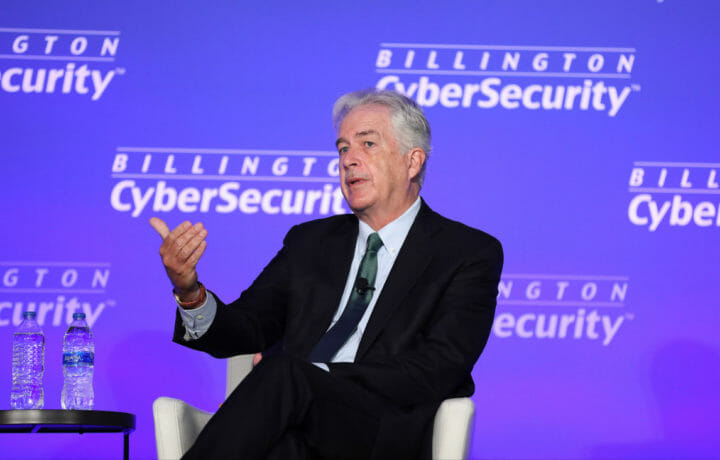The second day at the Billington Cybersecurity Summit had an early visit from CIA Director William Burns. The fireside chat was monitored by David Appel, vice president of national security at AWS.
Threat Landscape Today
Appel began by asking Burns about the current threat landscape. Burns confirmed that Putin’s war on Ukraine has occupied a lot of energy and attention. But it’s not the first time that Burns has interacted with Putin during his career. Burns said that he noticed last fall that Putin showcased a deep fixation on power, and an increased appetite for risk.
“Good, accurate intelligence has helped us to make policy choices and strengthen alliances, said Burns, so that six months into a tough war, Ukrainians have been able to launch a counter threat. Burns noted that Putin thought that he’d be tougher and could wear Ukrainians down. He confirmed that Putin thinks the energy crisis in Europe and America’s short attention span will give him the opening he needs.
But Burns believes that Putin will be proven wrong. He noted that the weakness of the Russian army have been exposed. And the Russian economy will be impacted for years to come.
Burns noted that declining powers, like Russia, can be as disruptive as rising powers, such as China. It’s a balancing act for the CIA. They can’t neglect the continuing threat from terrorism either. Burns notes that we’ve made considerable progress since 9/11. CIA has built relationships around the world. And terrorism is continually shifting, and it won’t go away.
At the same time, Burns shared that the CIA also has to provide policymakers the best analysis on intelligence, predicting future challenges. Whether that’s food insecurities, climate change, or terrorism, need to deal with a whole range of issues. “It’s a balancing act.”
Declassifying Intelligence
The current war in Ukraine has also highlighted that there’s a time and place to declassify information. Burns noted that the White House and the CIA have decided to make some intelligence public. On when to declassify intelligence, Burns said, “It’s good to make it the exception and not the rule.”
The CIA has used this technique to combat Putin’s false narratives, and Burns noted how effective it has been. He shared that declassifying information has exposed Putin; however, we should be careful and selective on what to keep classified and what needs to be declassified in the future. But sometimes, Burns said, “Declassifying some secrets can pay big dividends.”
And sharing intelligence with partners – domestically and internationally – can bring allies and partners together. We have a lot of competition from our adversaries. Burns noted how important it is to have the right partnerships in place.
Technology at the CIA
Burns confirmed that technology has transformed how the CIA operates overseas. He noted that case officers are under constant observation. And unfortunately, adversaries can use AI and mine data, discerning patterns in the CIA’s activities.
Burns said that while it does make it more complicated and difficult, the CIA is adaptable. They’ve worked to adjust tools and tradecraft. And really, the goal is to not just keep pace with adversaries, but rather, Burns said that we want to get ahead.
Burns highlighted the value of creating better relationships between the CIA and the private sector. He wants to better understand military and civilian technologies equally well.
In fact, the CIA recently created a Chief Technology Officer role. Burns commented that the goal is to create an agency-wide technology strategy that’s better connected to academia and tech sector. Burns said that he’s optimistic about what the CIA can achieve.
Finding and Retaining Talent in the CIA
Burns confirmed that the competition for talent is fierce. However, the CIA is approaching recruiting from many angles. He said that they are recruiting “energetically’ across all 50 states. They offer scholarships and internships, and they are really focused at engaging with the next generation and giving them the opportunity to get connected with the CIA.
But it’s not just about getting the younger talent in the door. Burns confirmed that they offer hiring and retention bonuses, which is a bit of anomaly in the federal government. And their technology fellows program, has created a two-way street to allow shorter periods of public service. The program allows officers to get private sector experience. And it also allows the private sector to have short stints in government service too.
Burns noted that the CIA is never going to be able to match salaries offered in the private sector. But that doesn’t mean that candidates should avoid the CIA. Burns notes that the CIA offers fascinating problems to solve. And they have smart, dedicated people. It’s an opportunity to serve our country. He said, “We work in the shadows, but we’re dedicated to keeping Americans safe.”




